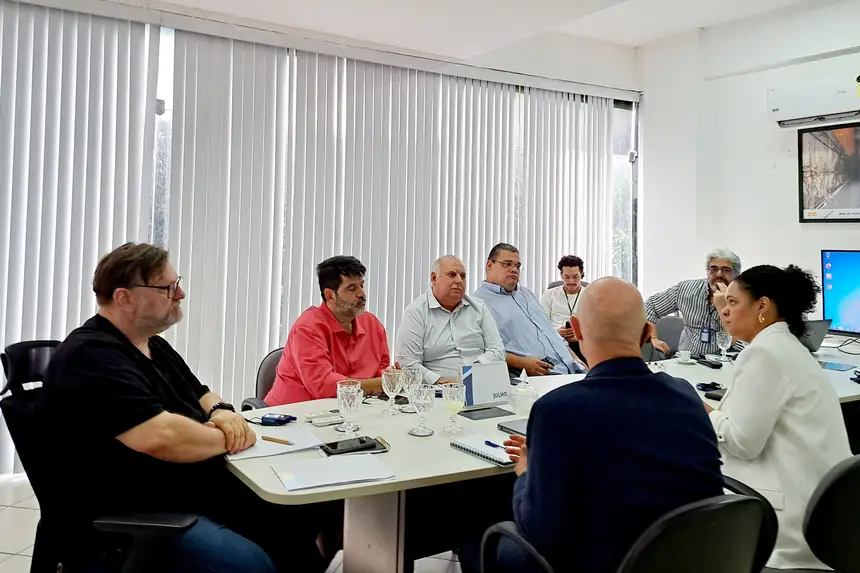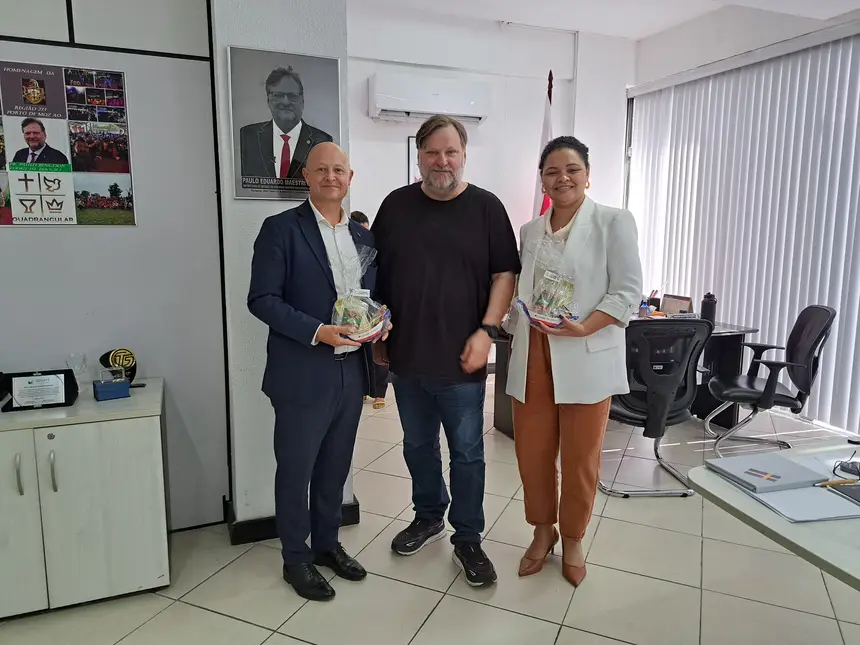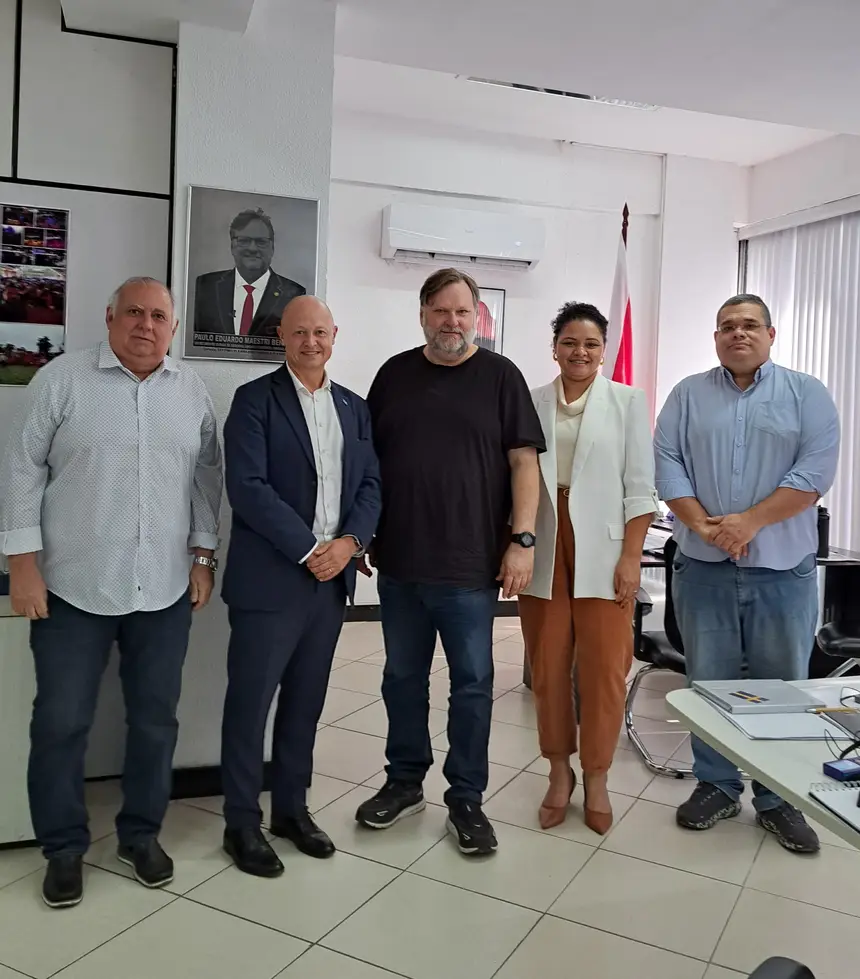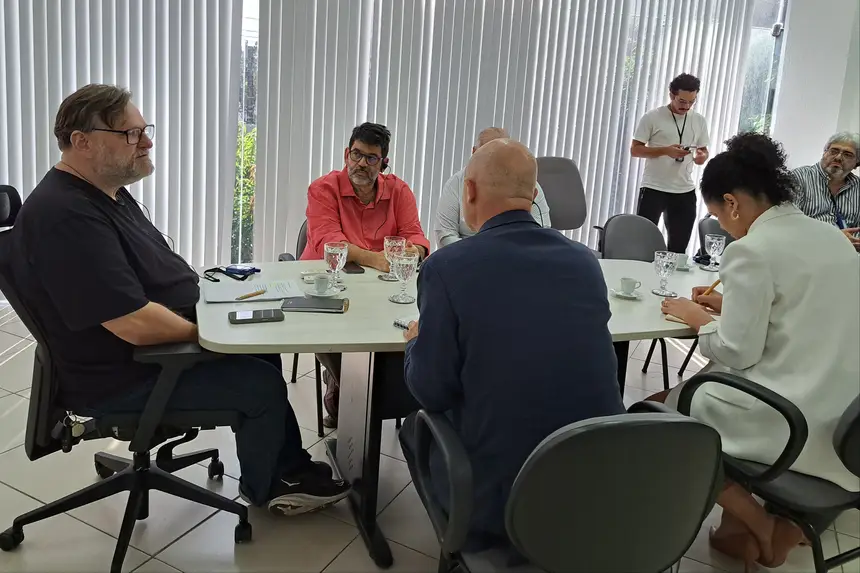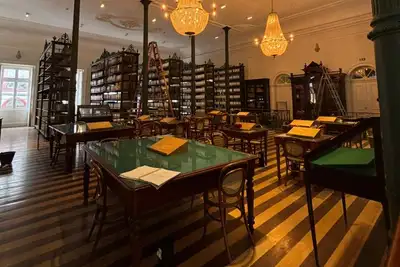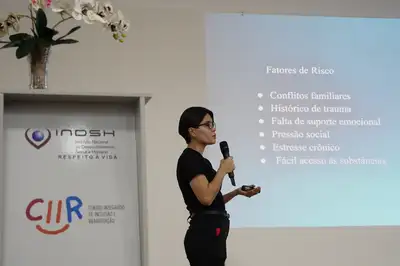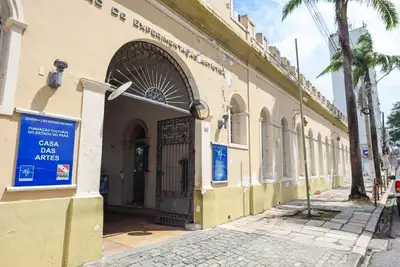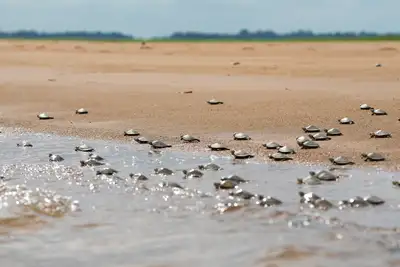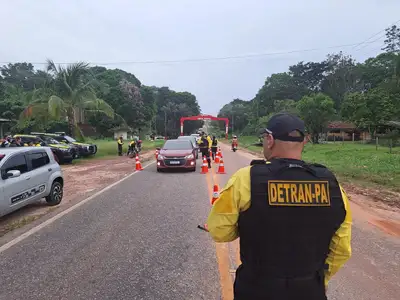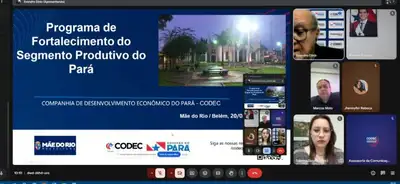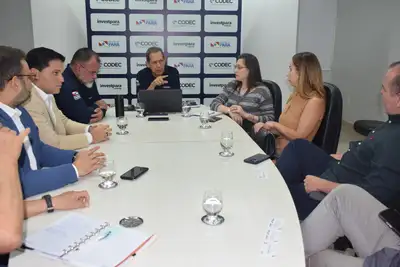Sedeme and Business Sweden discuss strategic partnerships for a low-carbon economy
Cooperation between Pará and Sweden aims at energy transition, innovation, and sustainable mining
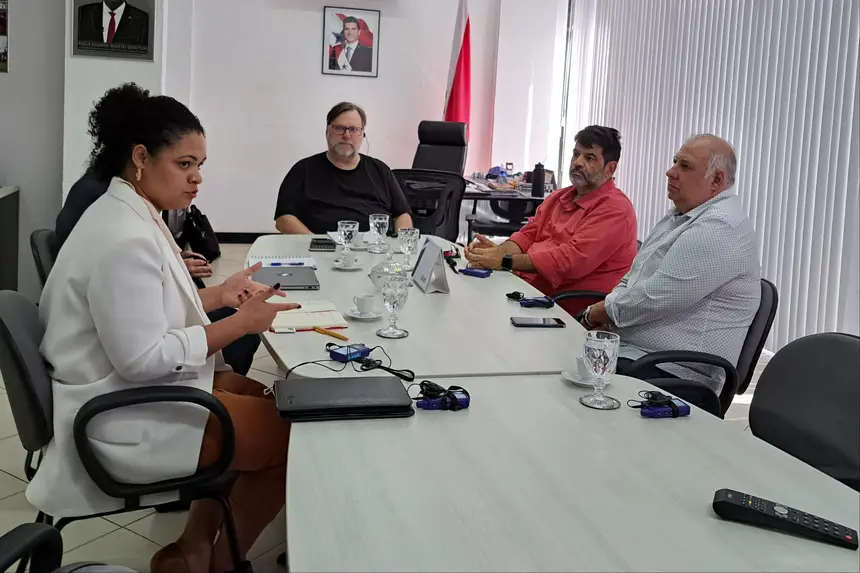
With a growing prominence in energy transition and sustainable development agendas, Pará advanced another diplomatic front by receiving, on Monday (23), representatives from Sweden's trade and investment promotion agency, Business Sweden. In the meeting held in Belém, the state secretary of Economic Development, Mining and Energy (Sedeme), Paulo Bengtson, welcomed the organization's representatives Andreas Rentner, Trade Commissioner, and Pricila Carmo, Project Manager, with the aim of promoting the exchange of experiences related to the transition to a low-carbon economy and establishing guidelines to enhance bilateral cooperation during and after the 30th United Nations Climate Change Conference (COP 30).
During the meeting, strategic partnerships in the sectors of mining, technological innovation, and sustainable mobility were also discussed. The head of Sedeme presented the economic development potential of Pará, highlighting the main socioeconomic indicators of the state and the significant advancement of industrial production. Bengtson also emphasized the importance of public policies aimed at social inclusion and the active participation of Pará's communities – especially traditional ones – as fundamental pillars for the success of initiatives focused on environmental conservation, cultural appreciation, and the green economy.
The secretary argued that societal engagement is essential to consolidate a development agenda that unites economic growth, social justice, and climate responsibility. He also presented state public policies to stimulate the attraction of sustainable investments, focusing on economic development, job and income generation, and the verticalization of production chains. According to data from the Operational Secretariat of Tax Incentives (Secop), 210 companies benefit from tax incentives granted by the state, with a projection of 4,765 direct jobs, US$ 388 million in fixed investments, US$ 122 million in estimated payroll, and over US$ 19.4 billion in revenues.
Swedish interest in clean technologies - Paulo Bengtson highlighted the strategic location of Pará and the relevance of the port region of Belém as a logistical platform for regional development and international trade. He also mentioned the state's prominence in the National Export Culture Program (PNCE), the encouragement of local production through financing lines, and the Socioeconomic Inclusion Program (PIS), which has brought electricity to rural communities in remote areas.
In response, Andreas Rentner expressed Sweden's interest in expanding its operations in the state, especially in the sectors of sustainable mining, renewable energies, and urban mobility. “We want to understand the opportunities and establish cooperation that unites social, sustainable, and economic aspects,” he stated. Currently, 220 Swedish companies operate in Brazil, generating about 60,000 direct jobs and moving more than R$ 30 billion per year, mainly in the Metropolitan Region of São Paulo.
Rentner also highlighted Sweden's investments in the decarbonization of transport, with an emphasis on the use of biomethane in logistics and urban mobility, and pointed out possibilities for partnerships for the development of green technologies based on renewable sources.
Technical mission and new cooperation fronts - Business Sweden representative Pricila Carmo proposed the creation of a working group with representatives from Sedeme to identify priority areas for technical and commercial cooperation, aiming to attract investments focused on renewable energies, sustainable mining, bioeconomy, and scientific exchange involving governments, companies, research centers, and investors. To kick off the work, she suggested a visit to the facilities of Scania, a Swedish manufacturer of heavy trucks, buses, and industrial and marine engines, located in the interior of São Paulo, with the aim of learning about practices related to energy transition, such as the adoption of electric and biomethane-powered vehicles.
At the end of the meeting, Secretary Paulo Bengtson reaffirmed the commitment of the Government of Pará to strengthen strategic partnerships aligned with climate policies and the Sustainable Development Goals (SDGs), in line with the state's commitments to reduce greenhouse gas emissions. Also participating in the meeting from Sedeme were the deputy secretary, Carlos Ledo; the director of Energy, Mauro Bastos; the director of Concessions, Wilton Teixeira; and the cabinet advisor Leonardo Lobato.


